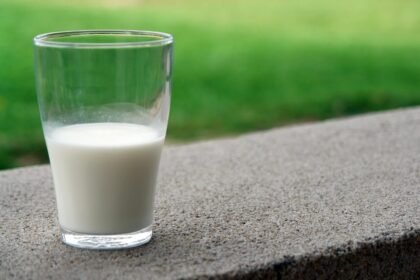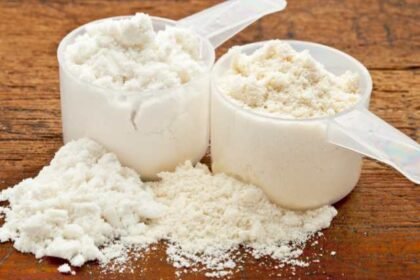If you plan your vegan food well, it can be very good for your health. It lowers the risk of chronic diseases, helps people live longer, and is in line with environmental and moral standards.
On the other hand, it’s important to know that some nutrients are hard to get from plant-based sources alone.
Vitamin B12, zinc, and DHA/EPA, which are omega-3 fatty acids important for brain health, are some of the most important.
This article goes into detail about why these nutrients are important, how hard it is for vegans to get them, and the best ways to keep your levels at a healthy level.
Understand the Vegan Nutritional Gap
A lot of study and clinical experience over many years, especially among vegans, has shown some important health trends.
Many vegans do very well on plant-based diets and avoid getting heart disease, strokes, and some types of cancer.
Studies, on the other hand, show that some long-term vegans develop brain problems, such as Parkinson’s disease and dementia.
These health problems are often caused by not getting enough of certain nutrients, like DHA/EPA and B12, which are not found in large amounts in vegan diets.
A lot of salt in the diet has also been linked to some health problems, like ischemic strokes. This shows how important it is to be aware of your whole diet, not just taking supplements for nutrients.
The Role of Vitamin B12
Vitamin B12 is a water-soluble vitamin critical for:
- Red blood cell formation
- DNA synthesis
- Neurological function
Not getting enough B12 can cause anemia, tiredness, and serious damage to the nervous system. Because B12 is mostly found in foods that come from animals, plant-based diets naturally lack it.
Some plant-based foods are added with B12, but eating only these foods might not give you a steady or enough diet.
Recommendation
Vegans should supplement with cyanocobalamin or methylcobalamin, which are widely available forms of B12. Regular blood tests can ensure levels are within the optimal range.
Zinc: The Underrated Mineral
Zinc plays a pivotal role in:
- Immune system function
- Cell growth and repair
- Enzyme activity
Plant-based foods like nuts, seeds, and beans contain zinc, but because they also contain phytates, zinc is not as bioavailable as it is in animal foods.
Phytates, which are found in grains and legumes, stop zinc from being absorbed, which makes it harder for vegans to get the zinc they need every day.
Recommendation
Incorporate zinc-rich foods like pumpkin seeds and fortified cereals into your diet. Consider supplementation if a blood test indicates deficiency, especially for individuals with higher needs, such as pregnant women.
DHA and EPA: Omega-3 Fatty Acids for Brain Health
DHA (docosahexaenoic acid) and EPA (eicosapentaenoic acid) are long-chain omega-3 fatty acids critical for:
- Brain function
- Cognitive health
- Inflammation regulation
Alpha-linolenic acid (ALA) is found in plants and is a building block for DHA and EPA. However, the body can only change ALA into these long-chain fatty acids in certain ways, which rely on genetics.
There is clinical proof that many vegans can’t convert enough ALA to meet their brain’s needs. This makes them more likely to get neurological disorders and cognitive decline.
Algae-Based DHA/EPA Supplements
To fill this gap, DHA/EPA vitamins made from algae have become a good choice. Mercury and microplastics, which are often found in fish, are not in these supplements. But there is a wide range in the quality of DHA/EPA pills.
Key Considerations for Choosing DHA/EPA Supplements:
- Freshness: DHA/EPA is prone to rancidity, which can reduce efficacy and cause digestive discomfort.
- Packaging: Choose products stored in dark, glass bottles and refrigerated to maintain potency.
- Sourcing: Verify that supplements are derived from high-quality, sustainably harvested algae.
Why Chia and Flax Aren’t Enough
Even though chia seeds, flaxseeds, and walnuts are great sources of ALA, most people can’t get all the omega-3s they need from these foods alone.
Genetic and clinical studies both show that the body’s ability to change ALA to DHA/EPA is very changeable.
This conversion depends on things like age, gender, and general diet, so most vegans need to take supplements.
The Risks of Seafood for Nutrient Replenishment
While seafood like oysters, clams, and fish is rich in DHA, EPA, and zinc, modern environmental factors have rendered these options problematic:
- Toxin Contamination:
- Plastic pollutants and agricultural runoff have introduced neurotoxins like BMAA into coastal waters.
- Studies link these toxins to ALS and Parkinson’s Disease Dementia Syndrome (PDS).
- Overfishing and Sustainability Concerns:
- Ethical and environmental considerations make seafood an incompatible choice for many vegans and environmental advocates.
Given these challenges, supplementing with plant-based, algae-derived DHA/EPA is a safer and more sustainable option.
Beyond Supplements: Holistic Nutritional Practices
While supplementation is critical, vegans must adopt a holistic approach to nutrition. This includes:
- Avoiding Processed Foods: Reduce salt and sugar intake to minimize risks of strokes and heart conditions.
- Regular Testing: Monitor levels of B12, zinc, DHA/EPA, and overall omega-3 status through blood tests.
- Diverse Plant-Based Diet: Emphasize whole foods, including leafy greens, legumes, nuts, and seeds, to ensure a broad nutrient profile.
Why Customization Matters
Nutritional needs vary among individuals due to genetic, lifestyle, and health factors. Some vegans may thrive without supplementation, while others require higher doses of specific nutrients. For example:
- Younger individuals may convert ALA to DHA more efficiently than older adults.
- Women of childbearing age may have higher DHA needs for fetal development.
- Athletes and highly active individuals may require additional zinc for recovery and repair.
Consulting a healthcare professional or a registered dietitian ensures personalized guidance based on unique needs.
Bottom Line
Vegan diets have a lot of promise to improve health and lengthen life, but they can still have nutrient gaps.
Getting enough vitamin B12, zinc, and DHA/EPA is important for keeping your brain and nervous system healthy, especially as you get older.
Along with a careful approach to whole-food nutrition, algae-based supplements are a long-term and successful way to close these gaps.
Vegans can get long-term health benefits from their food choices without putting their health at risk if they stay aware and take action.












